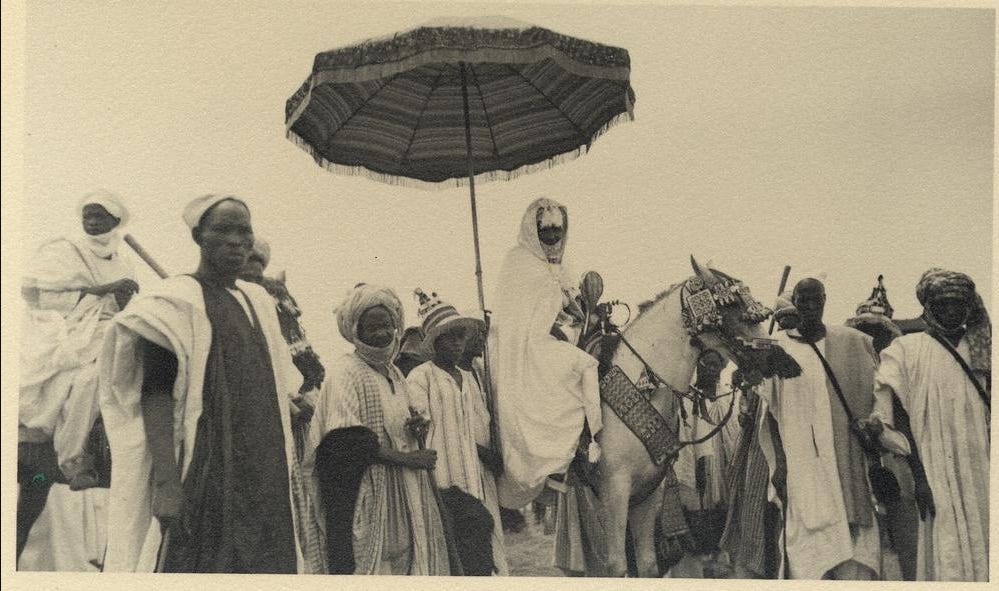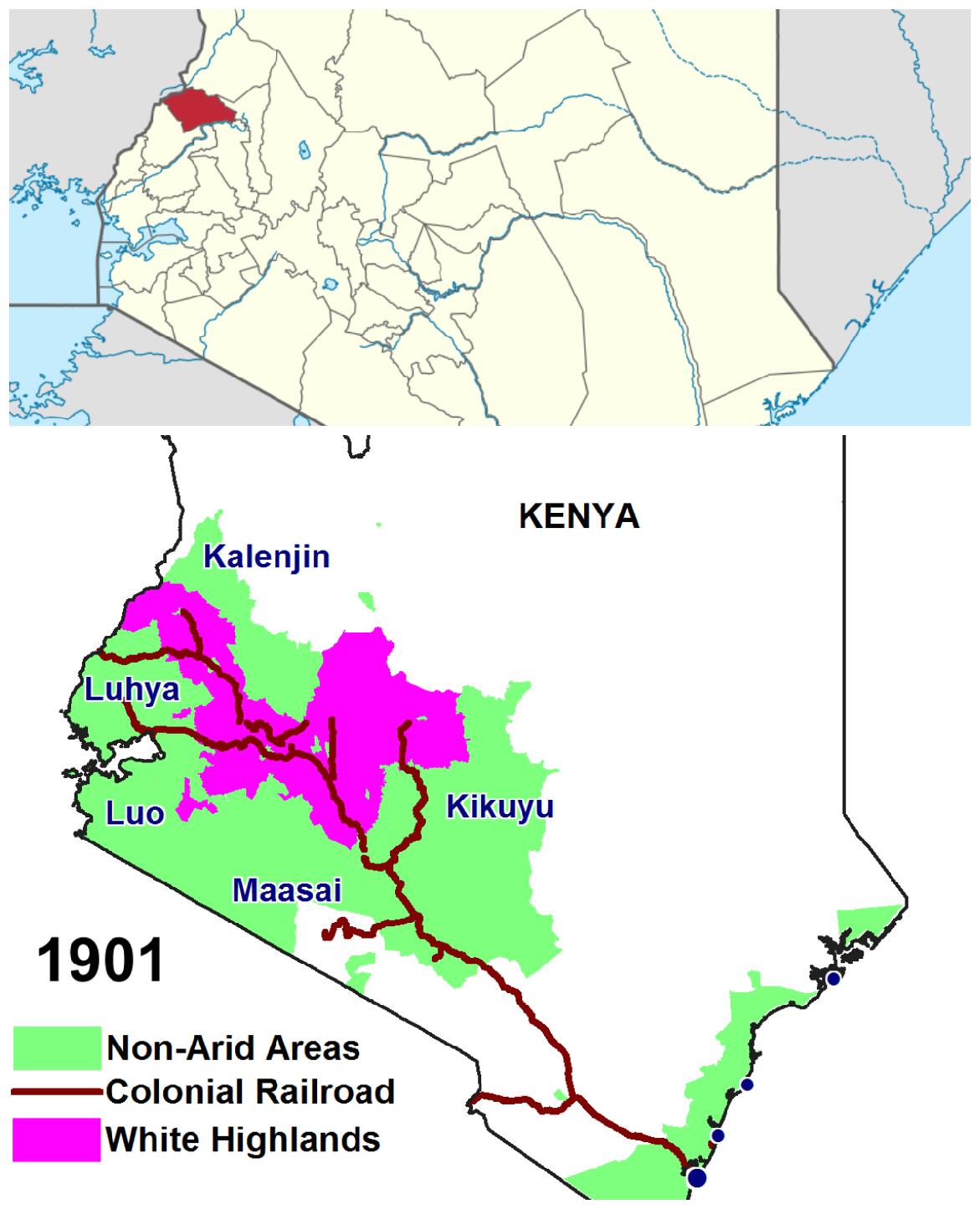Chinese almost always migrated to be merchants or skilled laborers, not really farmers. Few would be willing to go out to make a living growing sweet potatoes or whatever on some land ravaged by tsetse flies and tropical diseases, surrounded by displaced and resentful natives. Some, but maybe not enough.
Farming plus common commercial and skilled labor seems to be the only way for them to set down roots in big enough numbers to displace the Africans as Galton would like. Assuming Britain comes up with enough Chinese to do it, they'll likely form their own insular communities, doing business with their own. Hard farmwork is outsourced to cheap Black labor by the Chinese landlords, could end up in a situation between Northern Ireland and Rhodesia.
So could we see a situation in which Chinese immigrants make up a significant portion of the population? Ehhh, I doubt it. East Africa is too far away and there is little that would attract them.
I mean, we did manage to see significant Chinese and Japanese migration to the entire West coast of the Americas, so much so that several of these banned Chinese migration(USA, Canada) and that Japanese descent people make up a significant portion of Chilliean and Brazilian populations.
There was also enough migration to South Africa to also result in a ban to Chinese migration, all of this while they'll largely be migrating there to do more labour intensive work.
The Chinese also are a large Population and would definitely have different sub-cultures among them. I forget the name of the book, but there was one book I read sometime ago that made the argument that the Chinese that migrated for hard railwork labour in the USA and those that are famed for their economic work are from different sub-cultures and regions, such migration could just be made to appeal to the groups of Chinese either in high density farming communities thanks to the population growth under the Qing that are also now suffering the famines and natural disasters under the late Qing/early Nationalist China and less the Hui merchants that largely settled Malaysia.
Pretty much this, though culture and institutions can have a more limited effect as well. Chinese Malaysians often argue that their economic success is because Malays are "lazy", though in actual fact it seems to me (as an outsider anyway) that Malay culture traditionally emphasised growth less, which isn't too bad an idea in a country with crappy soil (for rice farming anyway).
The poor soil argument I have seen laid out before, in this blog arguing against an example given in why nations fail that decisions by leaders alone is able to explain why nearby peoples can have widely differing success, this example was between the Lele and Bushong people, the blog laid out arguments for the greater fertility of the land of the Bushong and their better accessibility to Kongo basin riverine trade routes.
Acemoğlu and Robinson rightly argue in ‘Why Nations Fail’ that chance decisions by leaders play a big part in economic success, but using the Congo Basin’s Lele and Bushong as an …
armchairprehistory.com
There is another place in can make the argument in that the Igbo people's agriculture was practiced in such a way that in the forests and Delta swamps of Niger Nigeria, they achieved a population density comparable to the Egyptian Nile Delta, while their neighbours didn't and in current day they are famous in Nigeria for their Enterprise and Crime, the later of which they explain by being more hard working and ambitious.
Another example from Africa are the Hausa, in the Northern part of Nigeria, also coming from a disproportionately fertile region and also being famous traders, with their langauge a Lingua-Franka in the adjacent Sahel and neighboring Northern Savannah.
Trade networks beyond ethnicity.

isaacsamuel.substack.com
I've heard the argument that African cultures can be less oriented toward commerce or agricultural growth, though culture is often a reflection of the environment.
And whoever said that is ignoring the general rule of not making generalizations over large areas. It would be quite absurd to expect and entire continent wide area to have the same attitude towards agriculture, unless they can explain what universally continent wide factors can explain that.
Needless to say, just because a culture is more predisposed to exploit the environment around it doesn't make it "superior", as our global capitalist culture will soon experience with the coming climate crisis.
The argument of inferior/superior culture I would say to the extent that it still needs to be had should be limited to singular fields like "A culture does farming for humid tropical environs better than culture B"
Another metric can be to measure in a free environment how much people move from Culture A to Culture B. Tho, this has its disadvantages as it could just be people moving towards an easier way of living.
The only way this could work is with genocide. The British Empire was no stranger to atrocities, but this would be an unprecedented act of ethnic cleansing.
I mean, I generally agree that the British Empire didn't move to intentionally Genocide populations, but the example I used with the White Highlands of Kenya and Rhodesia both had natives chased out of choice lands and replaced with Whites. This behavior could be replicated in the fertile lands of the Lacustrine.
Now such Population displacements would definitely lead to famine and conflict in the places these groups would be driven to but that can just serve as further evidence to say "the blacks are inferior, they suffer famine in their lands while the Chinese prosper" and further entrench the policy.



